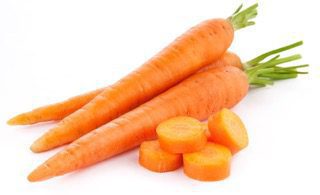

Dogs can benefit from carrots as a low-calorie snack that is high in fiber and vitamin A, which supports their optical and digestive health. To maximize the nutritional value, sauté the carrots in dog-friendly oil.
Carrots contain beta-carotene and essential nutrients that promote bone health, support good eyesight, and strengthen a dog’s immune system. Raw carrots are also great for digestion and dental health, as they can remove tartar and prevent plaque.
While generally a healthy snack, excessive consumption of carrots may cause stomach upset, vomiting, or diarrhea.
Choose organic carrots with fewer pesticide residues and wash and peel them before serving. Carrots can be given to dogs cooked, frozen, or fresh as treats, with cooking recommended to increase beta-carotene absorption. Lightly sauté the carrots in dog-friendly oil like olive oil to maximize the absorption of carotenoids, which are oil-soluble vitamins.
Carrots for Dogs:
Carrots are a widely available and affordable vegetable that offer a range of benefits for dogs. They are rich in fiber and vitamin A, which promote digestive and visual health. Carrots are also great for dental health and can reduce tartar and plaque buildup. Carrots originated in Asia and Europe, and they are now widely grown and used in many cuisines worldwide. Other common names for carrots include "carottes" in French and "möhren" in German.
Dogs can safely consume carrots in moderation, but excessive consumption may lead to stomach upset, vomiting, or diarrhea. Before serving, make sure to wash and peel the carrots and choose organic options with fewer pesticide residues. Sautéing or lightly cooking the carrots in dog-friendly oil like olive oil can increase the absorption of carotenoids, which are oil-soluble vitamins. Carrots are an affordable and easy-to-access option for dogs looking for a low-calorie and nutrient-rich snack.
If your dog is not a fan of carrots, there are alternative options to consider. Celery and cucumber can also serve as a low-calorie snack and offer similar nutritional benefits. They are also easy to prepare and serve. Keep in mind that each dog has individual dietary needs and preferences, and always consult with a veterinarian before introducing new foods into their diet.
Have you tried giving your pet carrots as a snack? Did they like it? Let us know in the comments below! And always remember to show your furry friend some love and affection.